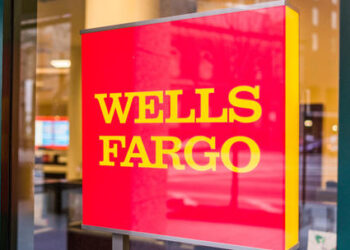Apple Said to Negotiate Deep Payments Discounts from Big Banks
Apple reportedly has reached deals to lower its card transaction fees with five of the largest financial institutions in the nation as part of the Silicon Valley giant’s to-be-launched payments venture.
The financial institutions are American Express, JP Morgan Chase, Citigroup, Capital One, and Bank of America.
We’ve reached out to all parties involved and all declined to comment.
Rumors about the deals were first made public by Tom Noyes, a financial technology investor and former head of channels at Citi, and confirmed by Bank Innovation sources.
The first thing Apple has done is convince these four FIs to consider transactions from Apple’s upcoming payments venture — said to launch with its forthcoming iPhone 6 introduction — as “card present” transactions, which carry a lower discount rate than “card not present” transactions, because of lower fraud risk.
Beyond that, Apple has also managed to bump down the actual “card present” rate by 15 to 25 basis points, according to people with knowledge of the talks. Normal “card present” discount rates, which are shared by issuers and networks but determined by the network, are about 1.5%, which means that Apple appears as though it will get around a 10% discount on the processing rate it will pay. Last quarter, Apple generated $4.5 billion of iTunes revenue — this implies that Apple will save at least $27 million as a result of these deals with the banks. Of course, more revenue volume is expected upon launch of Apple’s payments venture.
Reports about the Apple payments platform continue to surface. Re/Code and Bloomberg reported that financial networks Visa, MasterCard, and American Express were in talks with Apple, and, on the merchant side, our report regarding discussions with Nordstrom led to a wave of reports on Apple’s retail partnerships.
But why does Apple need a deal with the banks?
By partnering with Visa, MasterCard, and American Express, Apple will be able to conduct these transactions and cut banks out of the process altogether. So why partner with the issuers?
According to Noyes, while banks control the card-present/not-present rates, the networks negotiate the rates with payments processors. The differences can be dramatic. Apple was apparently adamant about getting the card-present rates and told issuers that it would assume some of the fraud risk inherent in every transaction by providing a secure element via biometric authentication (its TouchID feature) and location data provided through an NFC chip. The Apple payments platform will work with all of their cards.
Banks offered the discounted fee for two reasons: for the Apple payments platform to accept all of the cards from the issuers, and for Apple to assume some of the liability by including two secure elements that will authenticate transactions — location data via the NFC chip, and biometric security. This is essentially a wash for the financial services industry: they lowered fees for Apple for the privilege of being included in Apple’s payments initiative, but managed to put some of the transaction risk to Apple.
This deal could also lead to issuers making similar security-focused deals to ease the risk, and accompanying compliance costs, with the tech industry. Banks own transaction data. It is not clear whether or not Apple will have access to this extremely valuable data.
On Apple’s side, the deal with the issuers was the “polite” way of entering the financial services industry. We’ve heard of only one other merchant that has received a price break similar to Apple’s (cough, cough Walmart). Who knows whether Apple’s deals will foster additional price reductions on card transactions for retailers.











